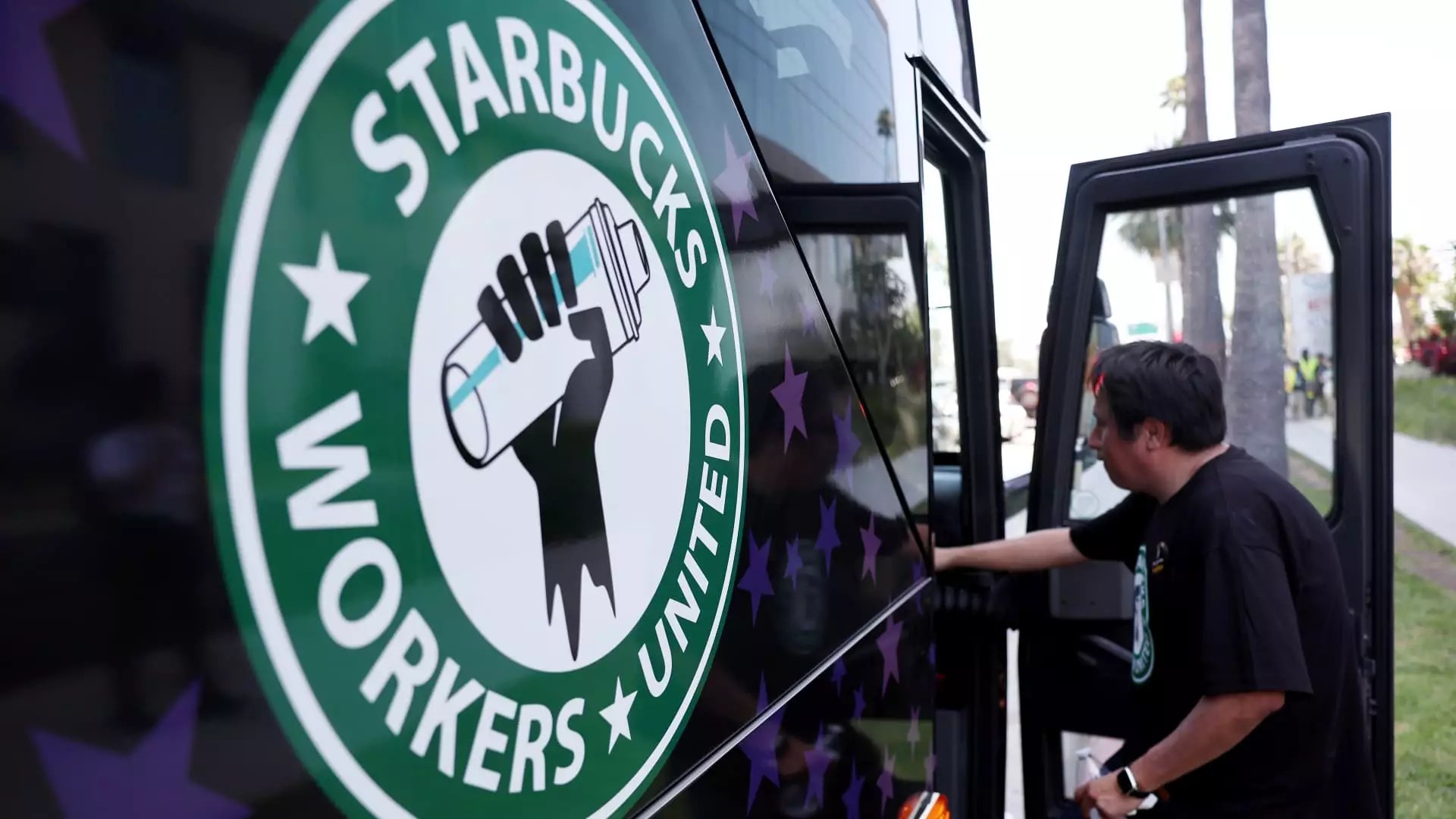In a significant display of dissatisfaction, Starbucks Workers United announced on Tuesday that an overwhelming 98% of unionized baristas have voted to authorize a strike as they negotiate a contract with one of the world’s largest coffee companies. This development indicates escalating tensions between the union and Starbucks, reflecting the challenges both parties face in reaching a suitable agreement. As bargaining delegates prepare to resume discussions with the company in the last scheduled meeting of the year, the union’s mandate for a potential strike underscores the urgency of their demands for better pay and benefits.
The road to a fair contract has been fraught with difficulties, as both sides have invested significant time and resources into negotiations over the past year. According to union representatives, despite extensive discussions and the drafting of numerous tentative agreements, the core issues surrounding barista compensation and other benefits remain unresolved. Hundreds of unfair labor practice complaints remain pending, which adds to the complexity of the negotiations. This situation highlights a growing rift, as baristas feel the need to take drastic measures like authorizing a strike due to their unmet expectations.
In response to the union’s actions, Starbucks has publicly disputed the characterization of the negotiations and insisted that they have been productive. They argue that since April, multiple bargaining sessions have led to substantive agreements on various issues that union representatives deemed important. This narrative posits that the company is actively working towards a resolution, yet the union remains unconvinced, indicating a significant disconnect in perspective. The situation raises critical questions about how two entities can interpret the same events so differently.
The tension between Starbucks and its workers is part of a broader trend of unionization in the coffee chain. Over 500 company-owned Starbucks locations have unionized in recent years, marking a significant shift in labor dynamics within the industry. This movement has not been without repercussions; the company’s previous attempts to stifle union efforts have led to backlash from consumers and scrutiny from lawmakers alike. The recent strike authorization suggests that this labor movement is not just a passing phase but a formidable challenge that Starbucks must navigate carefully.
As the negotiations evolve, the future of Starbucks’ labor relations hangs in the balance. While the arrival of new CEO Brian Niccol has ushered in some changes, including enhancements to parental leave policies, concerns linger over compensation adjustments amidst declining sales. Should the union proceed with a strike, it could have significant implications not only for the employees but also for the company’s reputation and consumer relations. The impending negotiations represent a critical juncture for Starbucks, as they aim to reconcile the interests of their workforce with the realities of business operations in a tumultuous economic landscape. As both sides prepare for further discussions, the outcome will likely set a precedent for labor relations within the company and beyond.


Leave a Reply